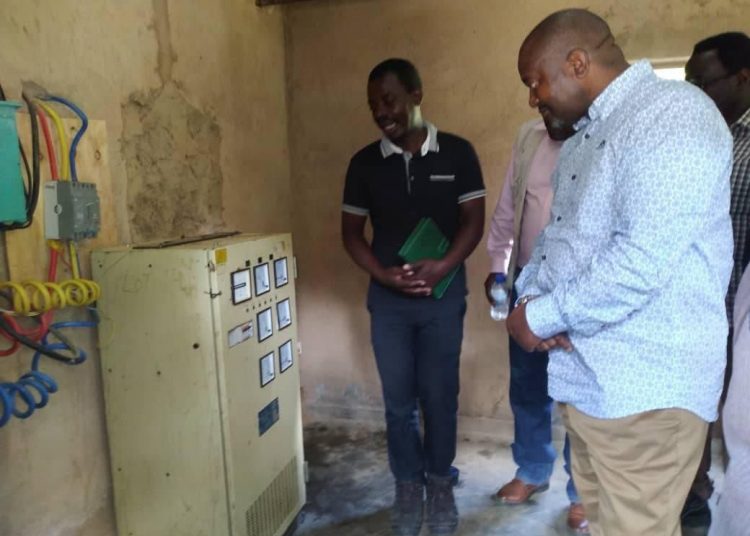The Tonse Alliance administration led by His Excellency Dr. Lazarus Chakwera is eager to support the youngsters that are innovative in the energy sector because that is what Malawi needs to alleviate energy challenges.
The remarks were made by Energy Minister Honorable Ibrahim Matola when he was in Rumphi to meet John Sayilence, a talented young guy who has created the Chipopoma micro hydro power plant that currently provides electricity to over 900 households in the Mantchewe community, Traditional Authority Kachulu, Rumphi district.
Honorable Matola said he was moved by John’s story and how the community works together to generate power from a waterfall.
The Minister said the Tonse Alliance government is committed to support young innovative in the energy sector to curb energy challanges facing the country.
Honorable Matola also commended the community members for working hand in hand with the young innovator to make the project sustainable and practical.
“If you’ve ever been to Mantchewe Water Falls, you know how dangerous it can be, yet the community, under John’s leadership, took a risk by descending more than 250 meters down the cliff to install locally made power generation equipment so that locals would have access to electricity. He informed me that although he is a secondary school dropout, he is glad that his dream has come true and I must applaud MERA which, instead of ordering banning of the power generation, recommended the system to be supported by stakeholders to make it safe,” he said.
Honorable Matola hailed the United Nations Development Programme – UNDP which, through the Increasing access to energy project and the successor ACRE Project, in conjunction with the Ministry of Energy, they upgraded the power plant and developed a minigrid that can now power a Maize mill, a Home Craft Cooperative, Primary School, Yewo jewellery Centre and Mushroom Farm tourist attraction Centre.
Meanwhile, through the ministry of energy, the UNDP is also assisting in the procurement and installation of a proper billing system that would allow them to sell tokens. Currently, the power plant charge a fixed monthly fee of Mk2,500 per connected household for unlimited usage. This is insufficient to fund the project because it costs more to fix the machines when they malfunctioned than what is being raised.




















